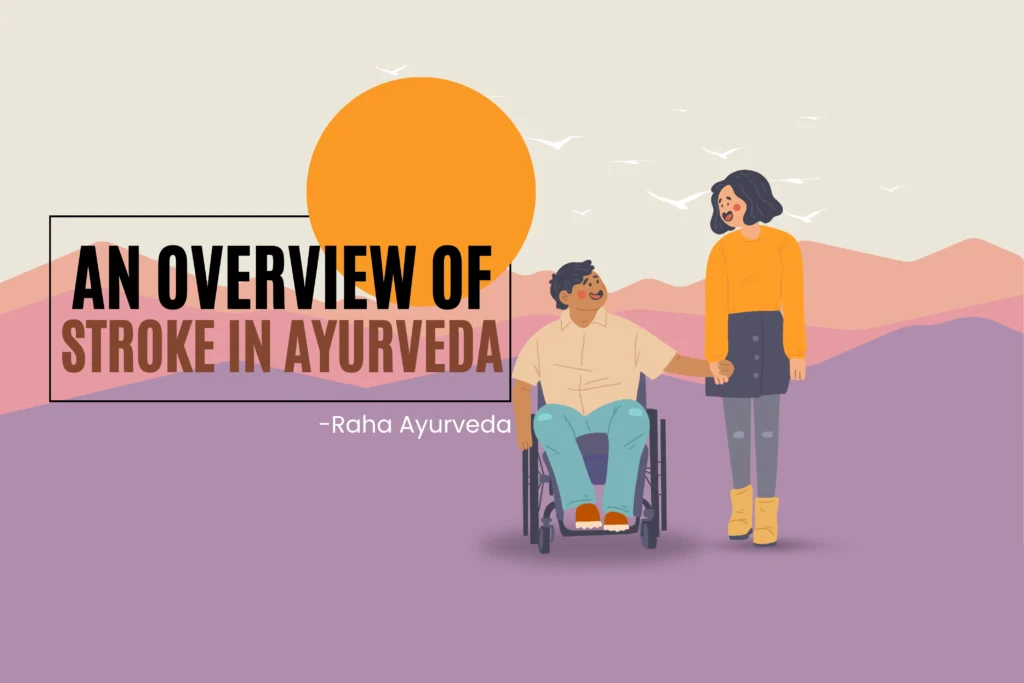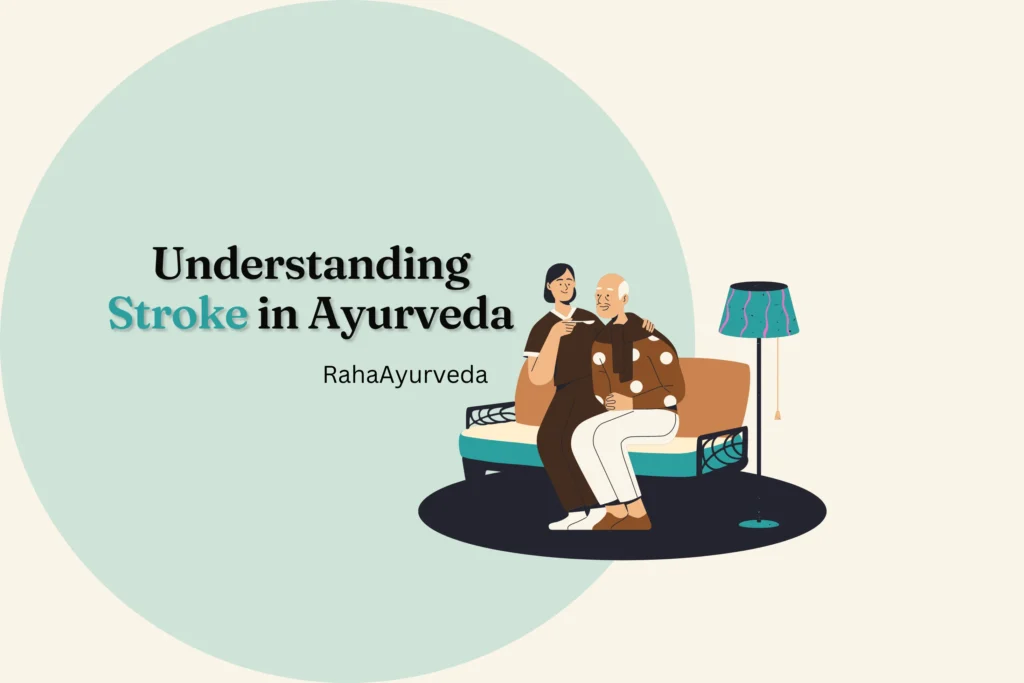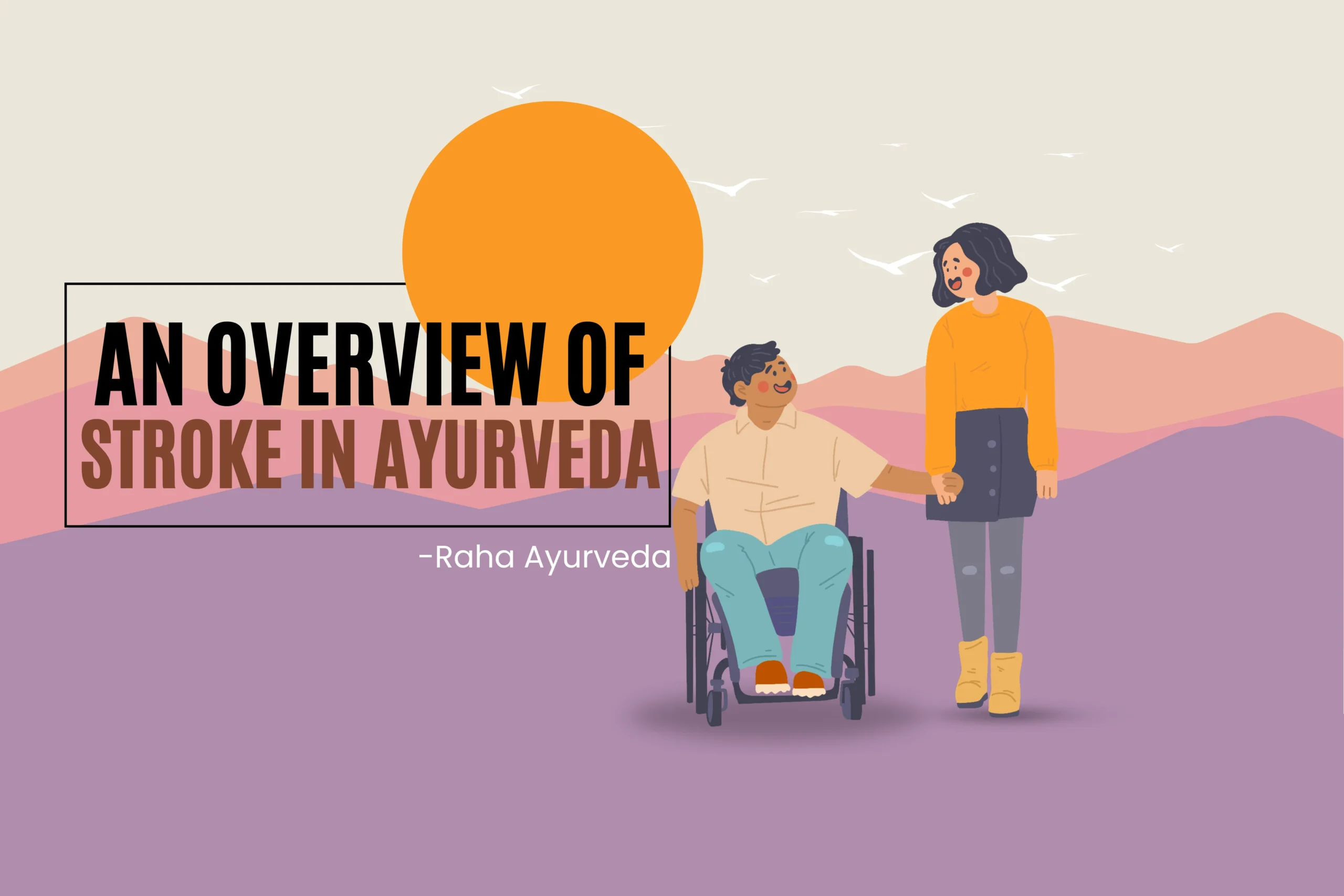Stroke, a medical condition characterized by a sudden loss of brain function, occurs when the blood supply to the brain is interrupted. There are two primary types of stroke: ischemic, resulting from reduced blood flow due to blockage, and hemorrhagic, caused by the rupture of a blood vessel. This Blog an overview of stroke in Ayurveda, its causes and Ayurvedic treatments.

Common Consequences of Stroke
Paralysis is a prevalent disability following a stroke, often affecting one side of the body corresponding to the damaged area of the brain. This paralysis can impact facial muscles, limbs, or even an entire side of the body. Additionally, stroke may lead to speech impairments or partial blindness in one visual field, depending on the affected brain region.
Factors Influencing Recovery
The speed and extent of recovery post-stroke vary depending on several factors, including the severity and location of brain damage, the individual’s age, and overall health status.
Also Read : The Role of Ayurveda in Post-Stroke Rehabilitation and Recovery
Identifying the Causes of Stroke
Several factors contribute to the onset of stroke, including:
- Atherosclerosis
- High blood pressure
- Atrial fibrillation
- High cholesterol
- Diabetes Mellitus
- Unhealthy lifestyle choices
- Stress
- Hereditary predisposition
Perspective on Stroke in Ayurveda
In Ayurveda, stroke corresponds to the condition known as pakshaghata, primarily caused by vitiated vata dosha. The treatment approach in Ayurveda focuses on restoring balance to the affected doshas and tissues.
Learn about Ayurvedic treatment for stroke from expert Ayurvedic doctor M.R. Vasudevan Namboothiri- Ayurvedic Stroke Rehabilitation – Insights by Dr. M.R. Vasudevan Namboothiri
An Overview of Ayurvedic Treatment For Stroke
Ayurvedic therapies such as snehana (oil application), nasya (nasal treatment), virechana (purgation), pinda swedana (herbal steam therapy), Kaya seka (oil pouring), and vasthi (enema therapy) are employed to strengthen muscle tissues and restore neuromuscular function. These therapies aim to eliminate toxins, clear blockages, and enhance peripheral blood supply.

Customized Treatment at Raha Ayurveda Hospital
At Raha Ayurveda Hospital, personalized treatment plans are tailored based on the patient’s paralysis stage, duration of the condition, and individual strength. Various Ayurvedic therapies are administered to address specific symptoms and promote overall recovery.
Conclusion
Stroke remains a significant health concern globally, impacting millions of individuals each year. While modern medicine offers conventional treatments, Ayurveda Treatment For Stroke provides alternative approaches focusing on holistic healing and restoration of balance within the body. By integrating both conventional and Ayurvedic approaches, comprehensive care can be provided to stroke patients, enhancing their chances of recovery and improving their quality of life.
Also Read: Achieving Better Quality of Life Post-Stroke with Ayurveda

Leave a Reply